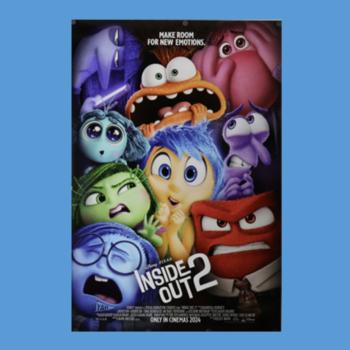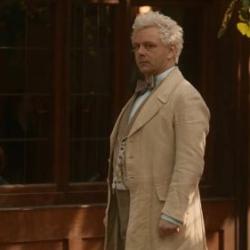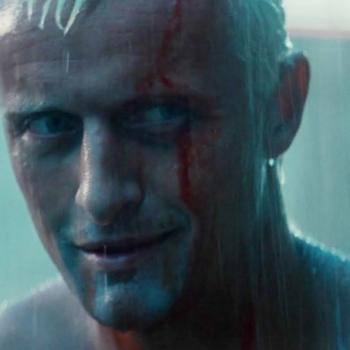Michael Sheen’s tour-de-force portrayal of Nye Bevan hits all the right notes for this American in Kentucky.
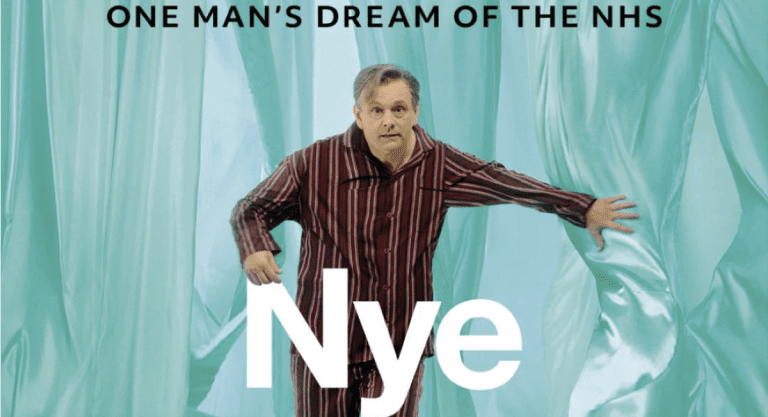
Sitting in a U.S. theatre in Louisville, not far from the mining towns of eastern Kentucky, I watched a play called Nye about a Welsh socialist, Aneurin ‘Nye’ Bevan, from the mining town of Tredegar. With intrepid persistence, he fought his way through the politics of the post-WWII British system to establish the largest socialist healthcare system in the world.
The title role of Nye was played by another Welsh socialist, the stage and screen actor Michael Sheen, from the steelworks town of Port Talbot.
Brought to life with imaginative staging and an excellent ensemble expertly directed by Rufus Norris, Tim Price’s surreal and ingenious play was tailor-made for Sheen. His famous skills of versatility were on full display in Nye. With every whoosh of the hospital curtains, he seamlessly transformed into the different stages of Nye’s life, from tentative boyhood to brash young adulthood to experienced politician.
Thanks to the National Theatre program, NT Live, I was able to watch this stunning British theatrical production an entire continent away.
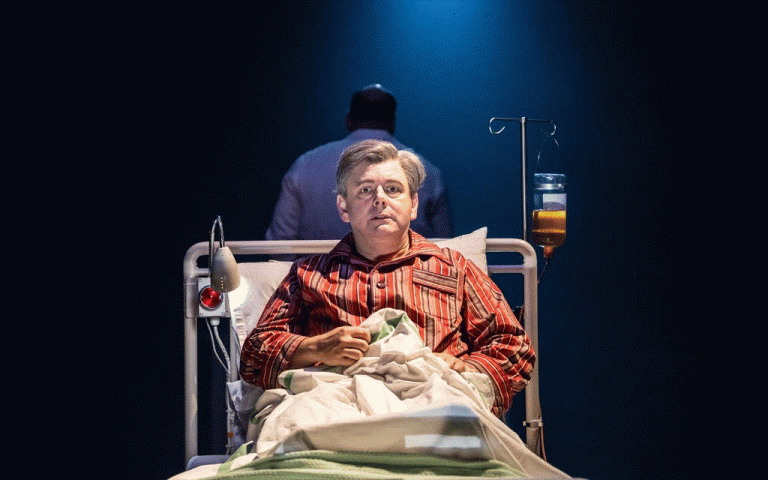
Complete with dancing hospital beds, laser lights depicting an underground coal seam, and even a musical number with Sheen joyously singing “Get Happy,” Nye is a perfect blend of comedy and pathos, biopic and political commentary.
Nye is a kaleidoscope of memories.
The premise of the play is Nye’s fever-dream recollection on his death bed of his life’s journey from the coal mines of Wales to the Houses of Parliament to the Labour Cabinet where, as Minister of Health, he established the National Health Service. While his wife Jennie Lee (convincingly played by Sharon Small) and friend Archie Lush (the stalwart Roger Evans) fret and fight as he lays unconscious in the hospital room, Nye moves through the subterranean memories of his past.
What’s stunning is the way Sheen morphs into these different stages of Nye’s life in a criss-cross of dreamlike scenes that unfold across non-sequential episodes.
Sheen perfectly embodies the vulnerability and persistence of a young boy caned by an abusive teacher for his stuttering impediment, yet emboldened when his classmates come to his defense. We also see him awed and lifted by books in a library that show him the way around the roadblocks of his stuttering.
When playing Nye as a young man, Sheen conveys a flirty playfulness in his initial meeting with Jennie. The scene is both endearing and heartbreaking, as we later learn that they lose a baby in childbirth.
Sheen also shows us both Nye’s courage as a trade union activist and lingering insecurity going up against entrenched powers in both local and national governments.
The most haunting scenes, however, are with Nye’s father.
Their complicated relationship runs like a coal seam through Nye’s life, and the play as well.
At first, all we see of his father is an image of contracting lungs projected on the curtains with an excruciating wheezing sound filling the theatre. Broken by his father’s loss of dignity and immense suffering from black lung disease, Nye channeled his grief and anger into fighting the systems that abandoned his family. He became a union official leading the General Strike of 1926 and went on to fight for a better life for the working poor who, like his family, could not afford the healthcare they needed and deserved.
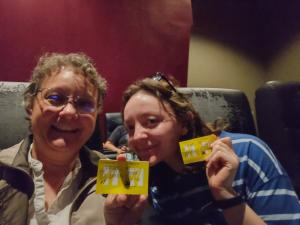
As a seminary professor who has taken students to visit the coal country of Kentucky, I have learned about the sustenance as well as the devastation that has resulted from the coal industry.
Like the workers in Wales, miners in Kentucky have also suffered from the exploitation and abandonment of the mining industry, even while relying on it to sustain their families. Pride in their work and self-sacrifice is both their bedrock and, ironically, their undoing.
I saw this poignantly portrayed in one scene where Nye follows his father into the darkness of the mine and places his tremulous hands on the coal seam. “The seam cuts the earth. Feel it, like the power of a horse’s neck,” his father encourages him. “Tell the truth, and the seam will give you everything you need.”
It is this truth-telling that propels Nye head-long into positions of leadership on behalf of the working class people he represents.
And it brings him into conflict with Winston Churchill (the indomitable Tony Jayawardena), Nye’s formidable political opponent. Their relationship is one of iron sharpening iron, and Nye emerges with the political skills that will later enable him to launch the NHS.
At the apex of Nye’s career, we see, through Sheen’s confident stature and vocal surety, a man who has the political savvy to bring his vision of the NHS to fruition. He takes all that has formed him, all that has broken his heart, all that has enraged him, and all the political cunning used against him to negotiate, maneuver, and midwife the NHS into being.
Sheen deftly moves through these scenes as fully-formed embodiments of each stage of Nye’s development. It’s like watching a master craftsman who has studied his subject for years and can bring it to life.
And, indeed, Sheen has done just that.
In 2017, he gave the Aneurin Bevan lecture at the Hay Festival and held forth for a riveting 45 minutes about Nye’s legacy and its implications today. With incisive critique and blistering analysis of the premises that undergird a capitalist economy, Sheen points to the dehumanization that “leaks out and trickles down and festers among us all like a poisonous mold.”
In this speech, Sheen calls for empathy, compassion, and connection for building bridges and uniting people in the face of division. This kind of solidarity leads to local movements that model the kind of social good that Nye saw in the Tredegar Medical Aid Society in his hometown in South Wales. That movement inspired Bevan’s campaign for the National Health Service to provide medical care free at point-of-need across the UK, regardless of wealth.
This is the solidarity, community empowerment, common purpose, and vision that Sheen calls for as well. It’s also what has fueled his own support of charities and community movements in Wales and beyond.
So, in the play, when Sheen says the words, “I am a Welshman. I am a socialist,” we are seeing a kind fusion of the historical figure with the actor himself.
What struck me hardest while watching the performance is that here in the U.S., it is unlikely that we’ll ever see something like the National Health Service in my lifetime.
The capitalist interests of Big Pharma, hospital CEOs, and health insurance companies are so entrenched, it’s difficult to see them ever agreeing to the creation of a universal healthcare system. Despite the fact that rural areas are watching hospitals and clinics disappear, personal healthcare expenditures average $10,000 per year (the highest in the world), and medical debt currently afflicts 100 million people, our country has made little progress toward overhauling this broken system.
This is not to say that the NHS does not have its own share of problems.
Their hospitals are beyond capacity. Patients experience anguishing waits to receive care. And the system is chronically underfunded. Not to mention the recent scandal of patients receiving tainted blood and the attempt to cover up the fiasco.
But just because the system is in crisis does not mean that Nye’s vision was faulty. Rather, it’s an indication of a lack of commitment to that vision. As Sheen said in his 2017 speech:
If you don’t start with people, then you shouldn’t start at all. Empathy, fellow feeling, compassion; no matter where we end up, these must always be where we start from. If we can’t begin by connecting with basic human experience – no matter what side of an argument we’re on, no matter where our political allegiances lie – if compassion and empathy don’t form the foundation of our decision-making process, then how can any of those decisions be trusted?
What Nye shows us is what can happen when we do start with people.
And when we build from the bottom up with empathy, as well as with accountability from the top down.
Most of all, it made me long for more leaders like Nye and Sheen who have the conviction, charisma, and chutzpah to fight on behalf of their communities.
Nye will be airing at select cinemas through July 23, 2024.
Read also:
Michael Sheen’s The Passion of Port Talbot is a Revelation
Good Omens: An Antidote to Toxic Christian Apocalyptic Fiction
Falling In Love with Aziraphale and Crowley: Love Leaves Its Clues
Aziraphale’s Choice: The Tragic Theology & Ecclesiology of Good Omens

The Rev. Dr. Leah D. Schade is the Associate Professor of Preaching and Worship at Lexington Theological Seminary in Kentucky and ordained in the ELCA. Schade does not speak for LTS or the ELCA; her opinions are her own. She is the author of Preaching in the Purple Zone: Ministry in the Red-Blue Divide (Rowman & Littlefield, 2019) and Creation-Crisis Preaching: Ecology, Theology, and the Pulpit (Chalice Press, 2015). She is the co-editor of Rooted and Rising: Voices of Courage in a Time of Climate Crisis (Rowman & Littlefield, 2019). Her newest book is Introduction to Preaching: Scripture, Theology, and Sermon Preparation, co-authored with Jerry L. Sumney and Emily Askew (Rowman & Littlefield, 2023).




